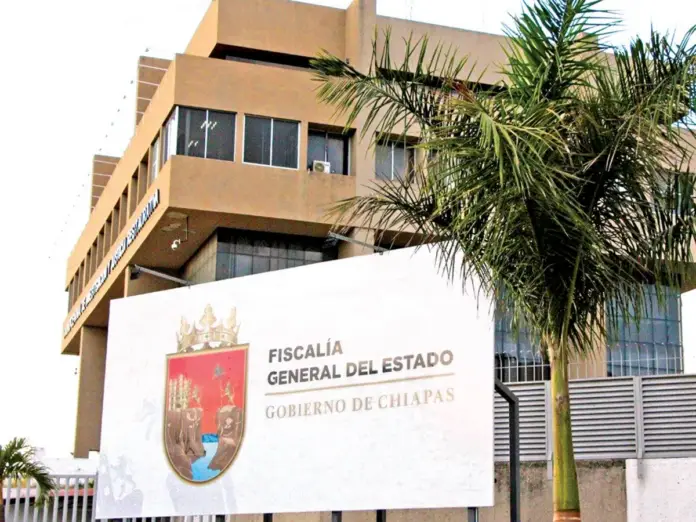Experts from the Attorney General’s Office of Chiapas (FGE), without the necessary studies and certifications, issue opinions favoring businessmen colluding with networks of judicial corruption, extortion, money laundering and human trafficking in the state.
An emblematic example of this phenomenon is trial 432/2010, a case that, due to the manipulation of judges, magistrates and experts, transformed an initial debt of 711 thousand pesos, derived from a neighborhood conflict over the border of a wall of just 35 square meters, into a multimillion-dollar debt of 3 billion pesos.
Among the main people involved in this corruption case are Guillermo Ramos Pérez, president of the Superior Court of Justice; Judge Ángeles Guadalupe Mendoza; and magistrates María Itzel Ballinas Barboza, Claudia Lucía Domínguez Acuña and Guillermo Horacio Esponda Orantes; In addition to the businessman Francisco Echeverría Blanco, owner of the land adjacent to the Marriott hotel in Tuxtla Gutiérrez.
The fraud was based on an accounting report prepared by the public accountant María de Lourdes Gómez Ordoñez, an expert from the State Prosecutor’s Office. This report, highly questioned for its lack of technical and methodological rigor, maintains that a 35-square-meter abutment would have prevented Echeverría Blanco from developing a six-story real estate project, a proposal without documentary evidence or feasibility.
Gómez Ordoñez’s report, carried out in 2023, projected hypothetical income derived from an unaccredited commercial project, without market studies or construction permits. In addition, it failed to consider operating and fiscal costs and land limitations, resulting in an overestimation of miscalculation.
A new accounting analysis carried out in October 2024 by certified public accountant Juan Guillermo Cíntora Torres revealed serious irregularities in the original report.
This analysis concluded that the calculations presented lacked a methodological basis and did not comply with accounting principles or applicable regulations, compromising the valuation.
“Consequently, the report presents a lack of objectivity that compromises its accounting and legal validity, by not complying with the principles of impartiality, rigor and evidence that must govern expert practice.”
The lack of a clearly defined and referenced framework for action in the report of accountant María de Lourdes Gómez Ordoñez, coupled with the absence of evidence that accredits her specific suitability to carry out an expert opinion of this nature, seriously questions the reliability of her conclusions.
“Her report is imprecise and biased in the specific accounting standards, applicable regulations and audit methods that support her procedures and analysis. In addition, the accountant omits fundamental details that support her impartiality, which reasonably displaces the objectivity of her analysis.”
Now it will be the FGR that carries out the necessary investigations in the case of the ruling that changed an initial debt of 711 thousand pesos into a multimillion-dollar debt of 3 billion pesos.
Source: excelsior






